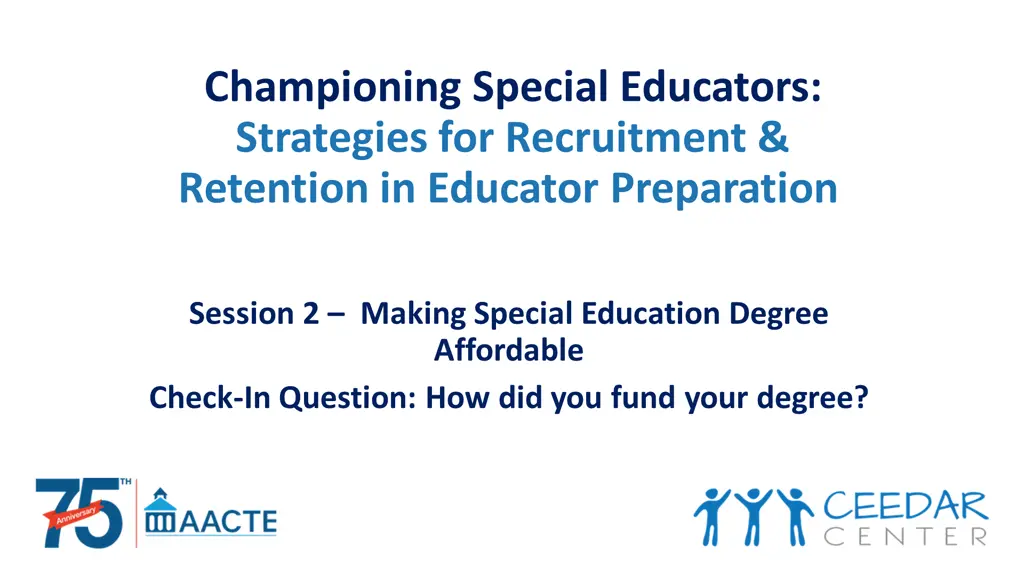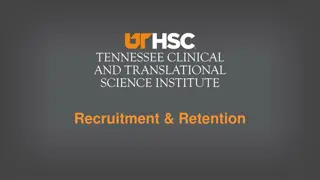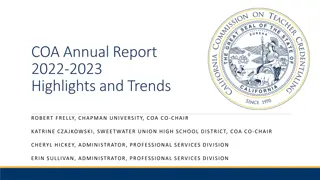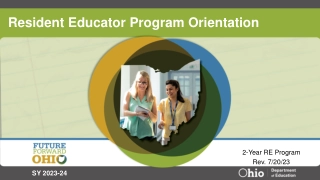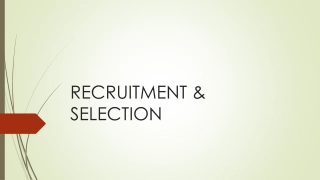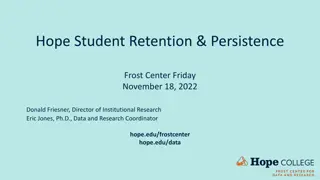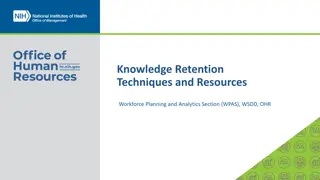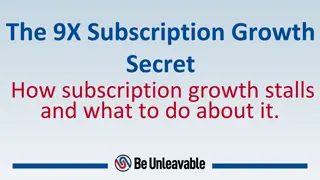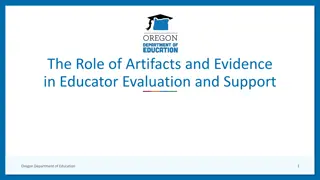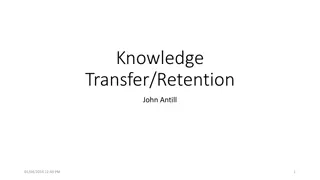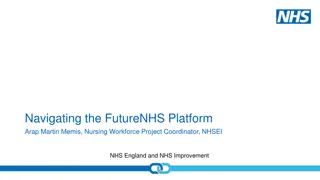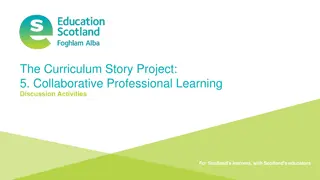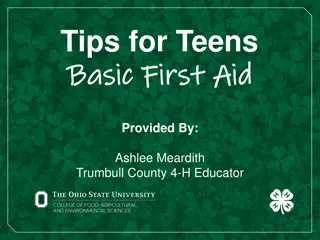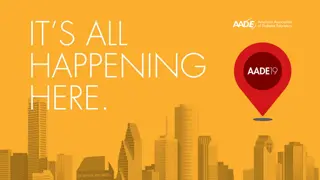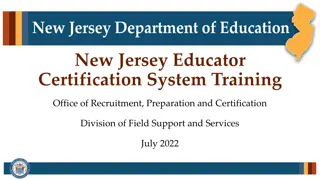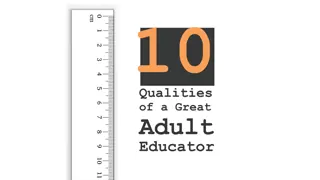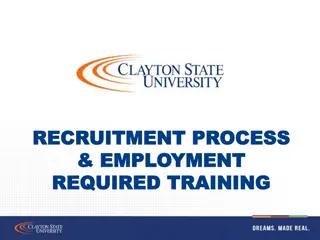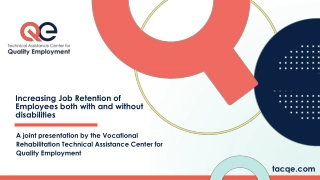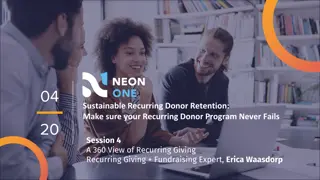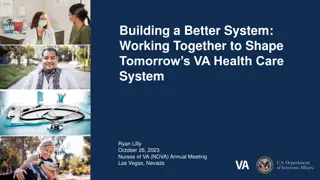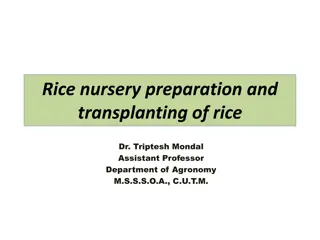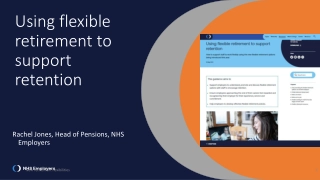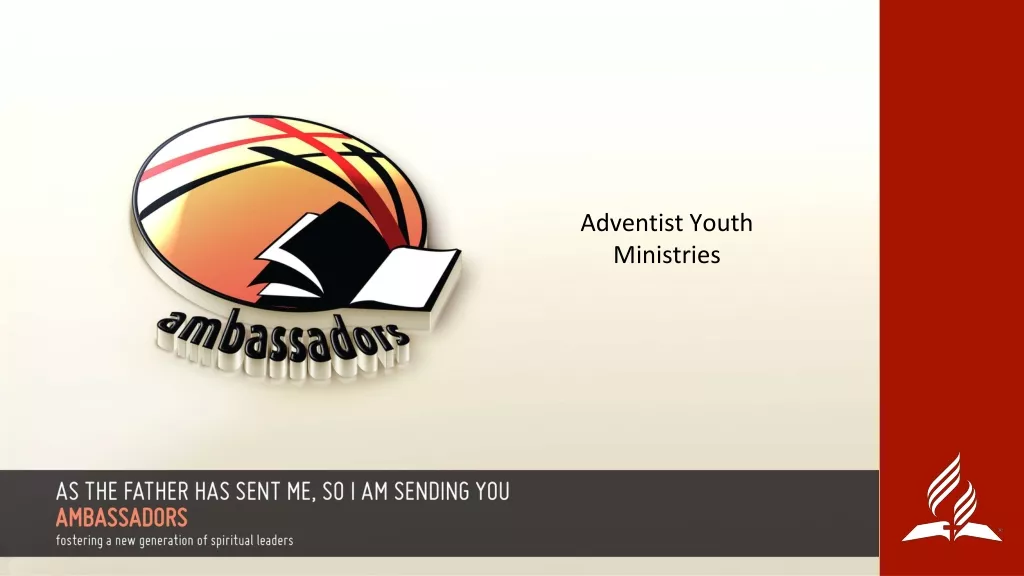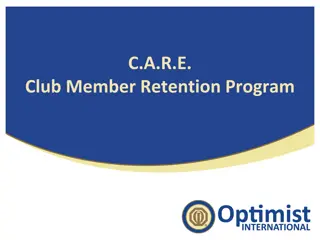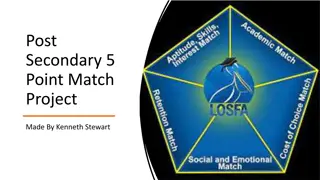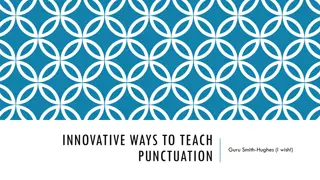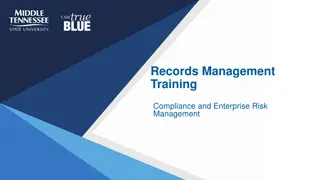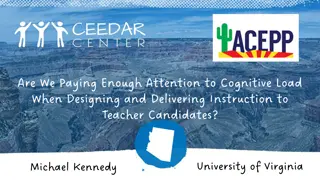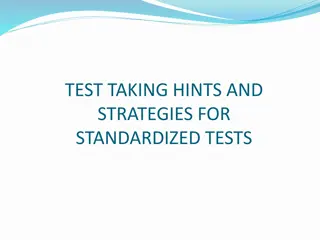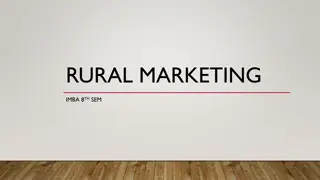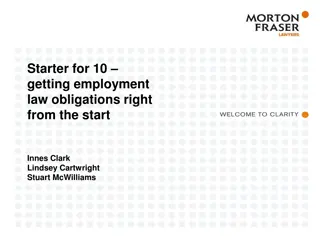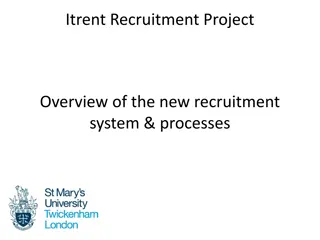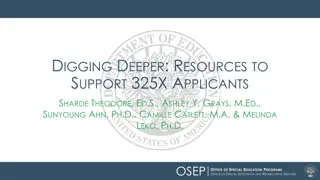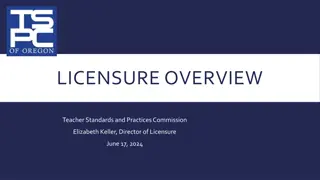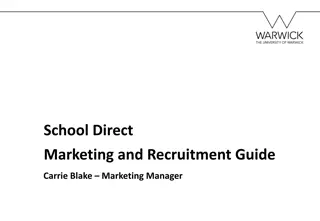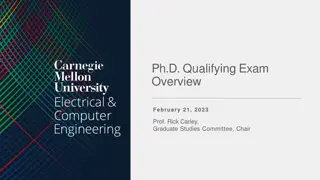Strategies for Recruitment & Retention in Educator Preparation
Strategies for recruiting and retaining special educators, including making special education degrees affordable. Join us to discuss funding options for special education degrees.
- special educators
- recruitment
- retention
- educator preparation
- special education degree
- affordability
- funding
- strategies
Download Presentation

Please find below an Image/Link to download the presentation.
The content on the website is provided AS IS for your information and personal use only. It may not be sold, licensed, or shared on other websites without obtaining consent from the author. Download presentation by click this link. If you encounter any issues during the download, it is possible that the publisher has removed the file from their server.
E N D
Presentation Transcript
Championing Special Educators: Strategies for Recruitment & Retention in Educator Preparation Session 2 Making Special Education Degree Affordable Check-In Question: How did you fund your degree?
Introductions Wead James. Ph.D. Vice President, Organizational Advancement AACTE Brooke Evans, M.A. Assistant Director, Research & Practice AACTE Sarah Haynes Engagement Specialist, AIR/CEEDAR
Championing Special Educators: Scope and Sequence Tues, Oct. 31, 3-4 pm ET Multiple Pathways Into the Profession Thurs, Nov. 30, 3-4 pm ET Making a Special Education Degree Affordable Tues, Jan. 23, 3-4 pm ET Clinical Practice Experiences Thurs, Mar. 28, 3-4 pm ET Special Education Candidate Wellness Thurs, Apr. 25, 3-4 pm ET Benefits of Special Education NIC Thurs, May 2, 3-4 pm ET Championing Special Education Through Advocacy
Teacher Quality Partnership Program (TQP) Authorized in Title II of the HEA, TQP is designed to strengthen and reform educator preparation at institutions of higher education, and prepare profession-ready teachers for high-need schools and high-need subject areas. Grantees are partnerships between IHEs, high-need districts, high-need schools and other eligible entities. Grantees are required to provide extensive-year long clinical preparation to candidates and must provide induction supports. Candidates are prepared to teach students with disabilities, English Language Learners and literacy strategies. Grantees are expected to maintain reforms after federal funding ends and must provide a 100% funding match.
Resource Overview Perkins Loan Cancellation State-Sponsored Student Loan Forgiveness Programs TQP Applicant Info & Resources TEACH grants Teacher Loan Forgiveness Public Service Loan Forgiveness
Example/Exemplar Sarah Irvine Belson, Ph.D. Professor School of Education American University Carolyn Parker, Ph.D. Director, Graduate Teacher Education Acting Director of Academic Programs School of Education American University
Making Teacher Education Affordable: American University s Residency for Excellence in Teaching and Learning (RETL) Project D R . C A R O L YN P A R K E R , D IR E C TO R O F G R A D U A TE TE A C H E R E D U C A TIO N D R . S A R A H IR V IN E B E L S O N , P R O F E S S O R O F S P E C IA L E D U C A TIO N
Agenda American University s School of Education Vision and Mission The RETL Partnership Leveraging our Commitments
on American University s School of Education Programs Programs mostly at the graduate level in Education Policy and Leadership, International Training and Development, Teacher Education, and Antiracist Supervision and Leadership Teacher Education Undergraduate Degree in Elementary and Secondary Education with a minor in Special Education Master in Arts in Teaching and MA in Special Education and Learning Disabilities
on American University s School of Education Vision and Mission Vision The mission of the School of Education is to create knowledge and prepare students to transform societies through education. Mission The School of Education aims to be locally, and globally recognized for making a meaningful impact in the field of education through innovative teaching, research, and service. Our impact will be achieved through rigorous scholarship; advocating for equitable and inclusive learning environments; advancing social justice; preparing effective educators; providing leadership in public-policy arenas and collaborating with local, national, and global communities and organizations.
Leveraging Our Commitments to Increase Recruitment of Teacher Candidates Ongoing Intentional Work in DEI/Community, Justice, and Equity, Inclusive of Faculty, Staff and Students Teacher Pipeline Initiatives Residencies and Fellowships Dual Enrollment in Teacher Education Child Development Partnership Program High Impact Tutoring Programs
Residency for Excellence in Teaching and Learning (RETL): Partnership with Friendship Public Charter Schools Focused on Paraprofessionals and Newly Recruited Residents Special Education oEarly Literacy oLanguage and Speech Early Childhood Teacher candidates will spend an academic year in a school under the direction of a master teacher
Residency for Excellence in Teaching and Learning (RETL): Partnership with Friendship Public Charter Schools (FPCS) Reduced Tuition: $27,000 for Master s Degree Graduate Teacher Education Programs Have Reduced Tuition Model Approved by AU s Leadership Partnership Discount Generous and Flexible Financial Aid TEACH Grants Work Study Awarded for Teaching Generous Stipend with benefits from FPCS in the Residency Year Summer Teaching Stipend Pay Increase with Masters $10,500 of Tuition Assistance After Two Years of Employment to repay any remining loans or debt
Philosophy of the Partnership Supporting the Ongoing Teacher Shortage Practice --> Research --> Practice --> Research Explicit Acknowledgement of Race, Class, and Power Dynamics, Unjust Systems
Example/Exemplar Kimber L. Wilkerson, Ph.D. Professor of Special Education Department of Rehabilitation Psychology & Special Education School of Education University of Wisconsin-Madison
University of Wisconsin-Madison Special Education Teacher Residency Program Kimber Wilkerson Professor of Special Education klwilkerson@wisc.edu
Challenges Shortage of well-prepared special educators Need for special educators in high-need districts and schools Financial barriers Attrition, especially among early career educators
UW-Madison TRP Active and planful recruitment in collaboration with MPS Full academic year residency in MPS Generous living stipend of at least $46,500 Eligible for UW-Madison School of Education Wisconsin Teacher Pledge, which covers the cost of tuition Master s degree from UW-Madison Three-year commitment to teach in MPS Ongoing induction support for two years
Recruitment Partnering with MPS s Senior Director of Talent Management, Michael C. Harris UW-Madison Teacher Education Center Recruitment Coordinator, Anthony Baxter Department of Rehabilitation Psychology & Special Education Student Services Coordinator, Kayla Armstrong Use of Salesforce to share information internally Communications technical assistance and outreach Focus on MPS non-instructional employees, recent college graduates, and career changers in the Milwaukee community
UW-Madison TRP Recruitment of mentors with an eye toward sustained relationships Begin field experiences in first summer Dedicated TRP liaison
Living Stipend Funds provided through 2023 grant from the U.S. DoE, Teacher Quality Partnership program $46,500 in Year 1 of grant Set at the rate for emergency-certified teachers in MPS Paid out through MPS over 12 months Service agreement and expectations related to residency activities (field placements and coursework)
UW-Madison School of Education Wisconsin Teacher Pledge No interest loan provides up to the cost of in-state tuition plus testing and licensure fees annually for teacher education students No payments loans fully forgiven in exchange for teaching full-time in Wisconsin for three-to-four years
What the Student Pledges Graduate from their teacher education program. Get a teaching license from Wisconsin DPI. Teach at least 75% full-time at a PK-12 Wisconsin school for three-to-four years within five years after graduation. Verify employment annually via survey with Teacher Pledge Program Manager.
Who is Eligible? Rising Juniors Seniors Graduate Students Teacher Education Programs Undergraduate Art Education Physical Education Elementary Education Special Education Music Education Graduate Secondary Education Special Education World Language Education
How to Take the Teacher Pledge No application just complete FAFSA! Enroll if FAFSA is complete, after enrollment in classes student will receive a Teacher Pledge offer via email. Three Steps 1) sign the student agreement, 2) accept the loan, 3) complete the promissory note.
Post-graduation Induction Supports TRP Liaison continues to act as a resource Graduates continue to have an MPS mentor, paid by TRP Ongoing virtual community of practice Weeklong summer program for early career graduates: UW- Madison School of Education s Early Career Teaching Institute
Continuous Improvement Ongoing data collection related to all TRP project goals Annual reports from an external evaluator Annual advisory board convenings Continuous learning from residents, mentors, faculty, principals, alumni with high-level follow-up and advocacy
Breakout Groups What funding sources support your SpEd candidates? Alternate ideas/current practices for providing funding for sped candidates?
Next Session January 23rd, 3PM to 4PM ET Thank You
Disclaimer This content was produced under U.S. Department of Education, Office of Special Education Programs, Award No. H325A220002. David Guardino serves as the project officer. The views expressed herein do not necessarily represent the positions or policies of the U.S. Department of Education. No official endorsement by the U.S. Department of Education of any product, commodity, service, or enterprise mentioned in this website is intended or should be inferred. ceedar.org
